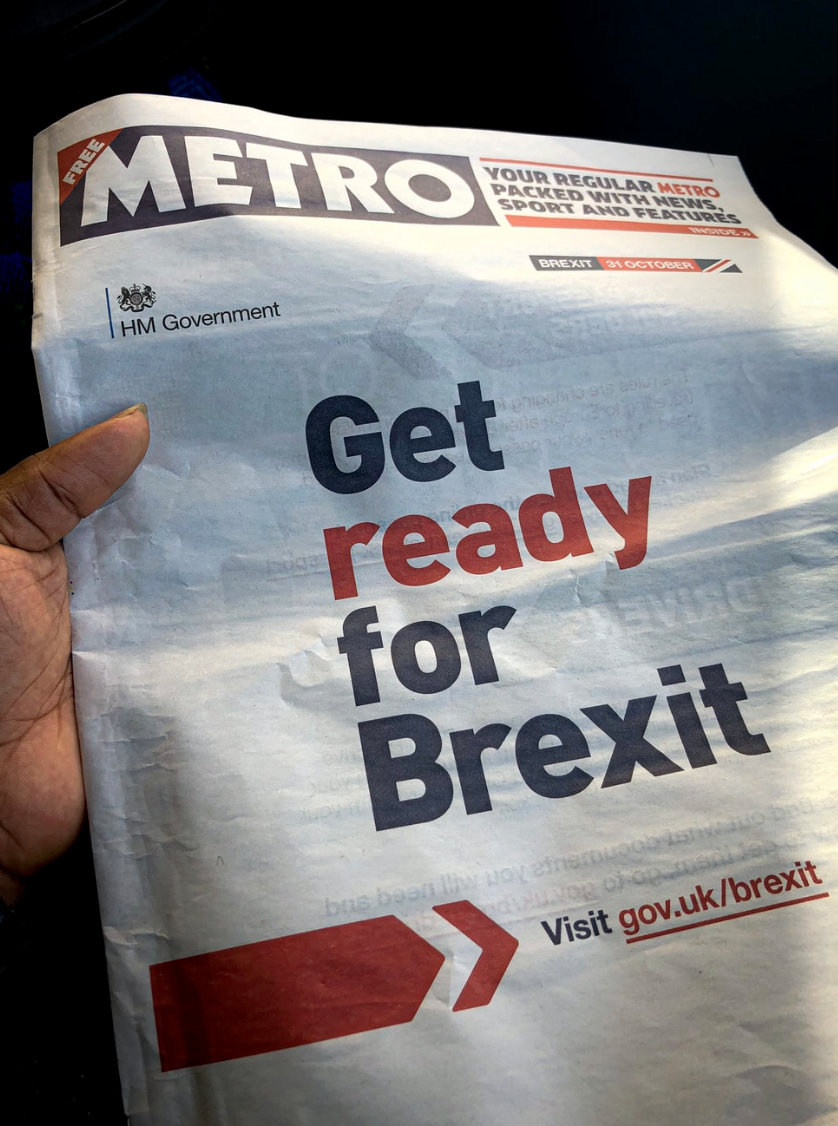By Oliver Briscoe, Third Year Law
Forget Brexit. I know for a Bristol student that may be difficult but do. As Vice-Chair of BUCA I often wonder why we are the pariah of the Bristol SU political spectrum, when most students here have Conservative voting parents and will vote Conservative. Apart from Brexit what is it that gives pride to those who have ‘never kissed a Tory’.
Apart from the Conservative Party’s stance on Brexit, universally unpopular with students, why has the mainly moderate, liberal BUCA struggled to attract members and is an easy opposition for most SU ideological tirades–more so than the Clay Shooting and Polo Societies? The Party has lost its inclusive vision.

Born out of a royalist sentiment, upholding a squirearchy, the Tories or Conservative and Unionist party has always struggled to represent the sizeable electoral needed to govern. A problem stemming from the Reform Act of 1832, with a country cleaved by industrial inequality. Solved by Disrali and Lord Randolph Churchill’s ‘tory democracy’. Once again, the Party is losing the goodwill of the majority, the centre ground middle class. The expulsion of the twenty-one like Grieve and Stewart, only embodies this loss.
Electoral success for the Conservatives has rarely ever come from ideological popularity. So much so that the Conservatives are not seen as an ideological party. To appeal then, to reform, the Party adapted its base and offered tribute to the country. Through the liberalisation of the economy, small business, meritocracy, free markets and sensible economic management. The Party revitalised itsvision.
People once voted Conservative because they believed in opportunity, in financial stability, they had aspired and endeavoured.
The two previous long-lasting Conservative governments where born out of perceived financial mismanagement by the Opposition; the Winter of Discontent, the 2008 crisis. With that, the Conservatives have adopted other issues, ideas to salt their speeches. The conservative identity of ‘Throne, Altar, Cottage’ Peel added crime and we, immigration. However, people who have these concerns and identify with these issues, vote Conservative regardless. In the upcoming election, the electorate who can give a party the governing majority, will vote Conservative in-spite of the Conservatives.

The appeal of the last great iteration of Conservative ideology, Thatcher’s New Right, churned society with success but turned sour rather quickly. To her great chagrin, the City became lucullian, revelling in an orgy of quick money. People rose to dizzying heights and stations without the long cultured, paternal sensibility of noblesse oblige; the public, social responsibility that comes with power, wealth and privilege. The individual sense of philanthropy, private charity.
Under Thatcher, the nouveau-riche distorted in their wake the traditional face of the Conservative interest, reneging its responsibility and disrupting its connection to the country has a whole. The grotesque face of the new Tory ‘I/my father made money, why can’t you?’ Forgetting the society and context that brought about their prosperity, they no longer felt they owed their due or thanks for it. Smothering themselves blind in excessive individualism. Othering the poor and the less fortunate, taking the most remarkable examples of fortune and individual success as standard and applying those expectations of vertiginous climbing to the whole.

At the same time they continued profligate, privileged, inactive and mediocre. A moralising plutocracy, masking the very vices they point to in others with wealth and inheritance. No longer showing the promise, talent and industry upon which they proudly rest their laurels. Conservatism had become brash and vulgar. The offal of Thatcher’s humble-homed, headstrong, hard-working Tory. Became a callous, self-interested, dialectical strain of Toryism. Uncaring and embarrassing, it is an ideology that has been tempered; the parent terrible of the modern Party.
With no sense of community and no sense of other, lacking moral fortitude and decency. The Conservative Party could not survive, despite its economic success. Blair tapped into the weariness from class antagonism and struck a hopeful path for all society. So once again the Conservative were consigned to wallowing in irrelevancy.
From Thatcher’s heir came the heir to Blair, Cameron. He tried to shore the environment to the host of small issues already claimed by the Party, in an attempt to include the country. Crucially, he tried to include society, as a One-nation Tory. He understood that only compassion could appeal to the ever-left leaning, socially liberal United Kingdom. That everyone could be Conservative, if the Conservatives cared for everyone.
Reform will need to go towards the One-nation morality
The Party was bridging the divide with tolerance, community, recognising systematic societal problems and redressing them by presenting the possibilities for a future. A cohesive civil society, created organically without the interference of the overbearing State. Based on well-rounded human beings. Individuals who would better our society and our communities.
A necessary austerity shadowed this social Toryism and people continued to vote Conservative through gritted teeth. ‘Conservative, better than the alternative’ for pragmatic, economic reasons. May, elected in dire circumstance following her own One-nations views, were eclipsed by another crisis; Brexit.
Since Brexit, the Conservative Party, instead of embracing social modernity, the new reality of the UK has reached back in a retrograde fervour, to champion an ideal of XXth century nationalism, even forgoing its electoral stalwarts: economy and pragmatism. People who vote Conservative this time will continue to say ‘He’s Tory but I want x so I’ll vote for him.’ Another issue driven vote. How viable can this be? How many more elections can the Party win with no guiding principle, no vision for society, no uniting tie, beyond scaremongering about an impotent opposition, equally retrograde.
What is it that gives pride to those who have ‘never kissed a Tory’, so fervent usually because they have and enjoyed it.
The Conservative Party, One-nation conservatism was founded in response to reform. Thus in the Tamworth Manifesto Peel set The Party's ironic fate, ever-changing to conserve itself. If it does not continue to change it will die out. It will never attract the more liberal generations that make up our student population. Once the final throes and spasms of Brexit pass, it will need to return to One-nation morality. For the country; compassion is not political, it is fundamental. So, to care, to be seen to care must be Conservative.

What do you think the Conservative party need to do to engage students?









